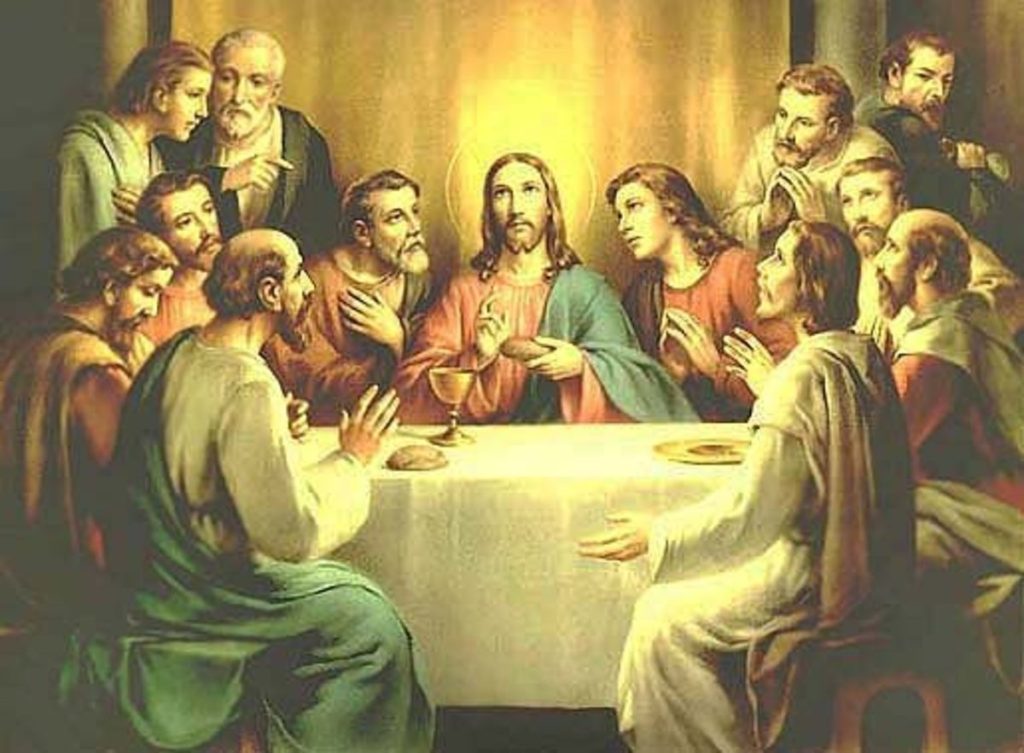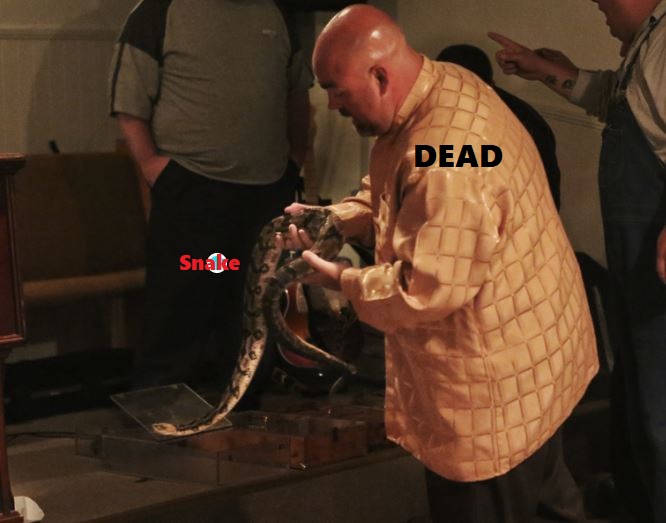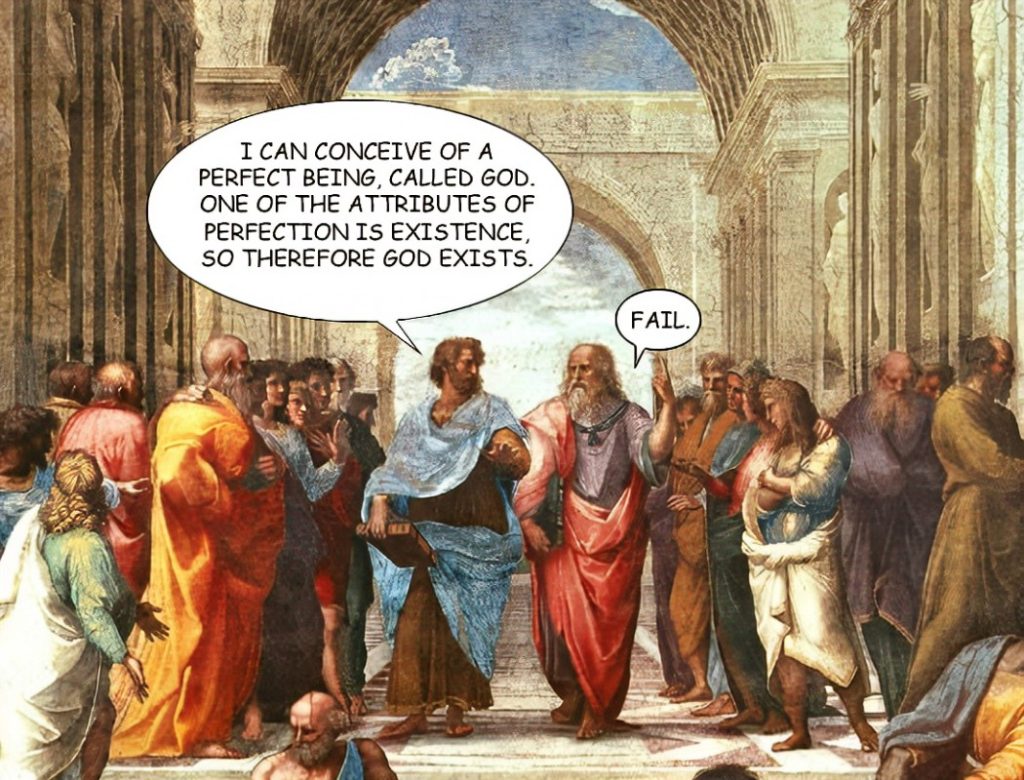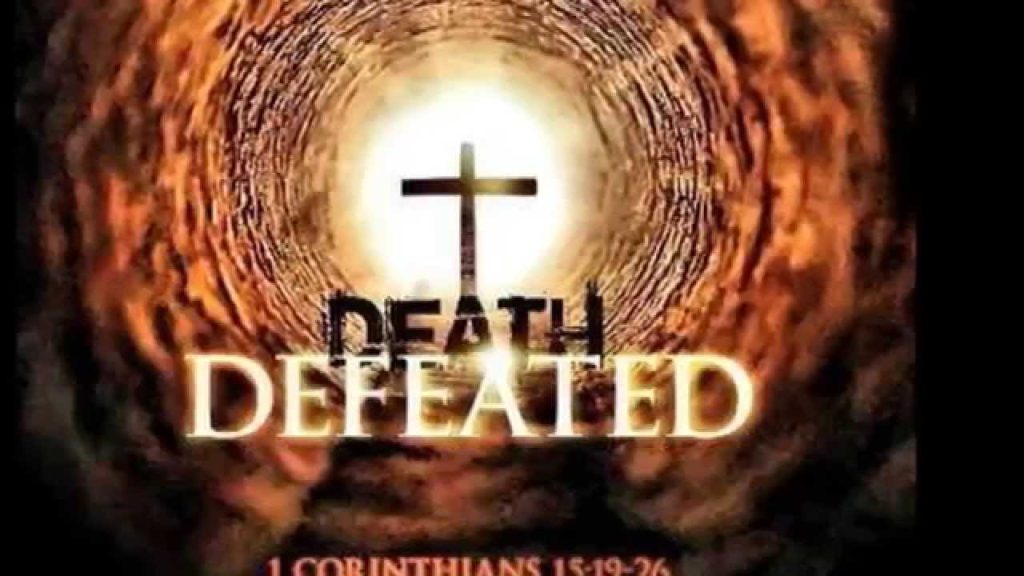
Most Christians and many non-Christians have a perception of Jesus as a pacifist, a bringer of hope, and a teacher of humility. He was a healer and preached to help the poor and to love your neighbor. However, what do the verses in the New Testament actually reveal about this Jesus character?
I do not concede the existence of Jesus, but for the sake of this article, I will go along with the myth.
I will concentrate on the Gospels, Matthew, Mark, Luke and John, and the life and teachings of Jesus.
*************
Agenda of Jesus This appeared to be a pleasant change from the violence of God and the gloom and doom of the prophets of the Old Testament. Instead of the management by intimidation from God, Jesus offered a different and more palatable avenue to eternal life.
Jesus preached that what was important were good deeds, loving your neighbor and following his teachings. Jesus spoke often in parables, which were received better than God’s harsh directives in the Old Testament.
This approach had tremendous appeal for the “little people” who were weary of the religious teachings of the past. Sounds great, doesn’t it? Well, it does, that is, until you get to the fine print.

Believe -or- Else (A.K.A., the fine print) There is much more to the words of Jesus than is routinely taught to gullible and scared kids in Sunday School. A thorough examination of these words deliver a more somber reality that Jesus was probably as unhinged as his Heavenly Father.
“Do not think that I have come to bring peace to the Earth; I have not come to bring peace, but a sword.” (Luke 12:49-51)
“This generation will be responsible for all shed blood of the prophets since the beginning of the world.” (Luke 11:50)
This verse, (John 3:16), is probably the most known and quoted verse in the Bible, but the fine print comes soon after with (John 3:18). “He that believeth on him is not condemned: but he that believeth not is condemned already, because he hath not believed in the name of the only begotten Son of God.”
This is the fine print. It is stated that God loves unconditionally, but with conditions, only as long as you follow the laws of Jesus. This is not Free Will; this is coercion with the threat of eternal torture. (John 14:23)
Christ/No: Jesus/Maybe? There have been tens of thousands of words written questioning the historicity of Jesus, much less his claimed divinity. Most non-believers I dare say take the path of least resistance and concede the existence of the physical person Jesus, while denying that he was or is a god. This is another story, for another time.
What seems to be lost in the shuffle of modern-day religious impairment are some of the good and moral teaching of Jesus in the Bible. It has been clearly shown by many that Jesus could not have possibly been the Messiah according to the parameters outlined in the Bible itself.
Unfortunately for Jesus, he was his own worst enemy by not denying his messiah-hood, giving his enemies the evidence that they needed to destroy him (See: Pharisees). In modern Christianity, the necessity of Jesus being a god is essential, while the good teachings of Jesus have been mostly forgotten.

Disciples Throughout the Gospels, for anyone reading them objectively, you just have to wonder why Jesus was hanging around with these guys. Jesus was always trolling and ridiculing his chosen 12 with zingers and condescension. (Mark 7:17-18)
Jesus confuses them and terrifies them by stating that some of them will be betrayed by their parents and be put to death. Then he states that “Not one hair of your head will be harmed” (Luke 21:16-18). Comforting, but not for the Disciple James, who was brutally murdered and the first martyr for Jesus. (Acts 12:1-2)
The word “disciple” is often used interchangeably with the word “apostle”. A disciple was someone who followed Jesus, but an apostle was one who actually spread the word of his teachings. Now you know.

Eyes Have Had It Just like the charge to drink poison and to handle venomous snakes with impunity (Mark 16:18), there have been numerous accounts of people actually following Jesus’s directive to do this horrific self-mutilation: “If your right eye causes you to sin, gouge it out… It is better to lose one part of your body than for your whole body to go into Hell.” (Matthew 5:29-30; 18:8-9; Mark 9:43-47). Just ouch.
Careful scrutiny of all of the words of Jesus reveals a bi-polar personality that is quite similar to his Old Testament counterpoint when you read some of the verses that you will not hear in Sunday School.

Family Values I was raised in a strong Christian family and my father was a minister. I learned about Jesus as a child, but never was exposed to verses like these:
“I have come to set a man against his father, and a daughter against her mother, and a daughter-in-law against her mother-in-law; and one’s foes will be members of one’s own household.” (Matthew 10:35-36; Luke 12:52-53)
These are no isolated verses taken “out of context”, but are repeated throughout the New Testament. Jesus showed total disdain for the family, including his own mother who is revered as a God by the Catholic Church (Luke 11:27-28)
Needless to say, people were shocked by these inexplicable words and were saying “He has gone out of his mind”. (Mark 3:21)
Gospels in Disharmony The meaning of “gospel” is a “good story”, or “the good news” and most people assume that the authors were all disciples of Jesus. Only Matthew and John were the claimed disciples, and Mark and Luke were not. However, as it is stated below, the Gospels were written decades after the lives of the apostles, so we really don’t know who wrote them. In reality, It could not be any of the disciples of Jesus, if they even existed at all.
All of the Gospels were written well after the claimed death and resurrection of Jesus, with the earliest account in Mark being written at least 70 years after the claimed fact. John was written over 100 years after the life of Jesus. The Gospels are embarrassingly inconsistent in their accounts of the life of supposedly the most important person to ever have walked the Earth. (See: Matthew/Mark/Luke/John)

Hellfire from Jesus As I mentioned above in the Agenda of Jesus, careful scrutiny of the words of Jesus reveals a darker side for this gentle Saviour. Jesus states that we will be judged for every word we have ever uttered, and condemned for it (Matthew 12:36-37).
Jesus goes on with his threats, stating that angels will come down to “sever the wicked” from the righteous, and toss them into a furnace of fire, with “much weeping and gnashing of teeth”. (Matthew 13:49-50)
I Can’t Believe it’s really Jesus As mentioned at the top of the article, Jesus often spoke in parables. And again, contrary to what is taught in Sunday School, some of the words of Jesus were downright shocking, weird and creepy. (Also see: Family Values)
Jesus states that anyone who divorces his wife, except for unchastity, causes her to commit adultery; and who ever marries a divorced woman, also commits adultery. (Matthew 5:32; 19:9; Mark 10:11-12; Luke 16:18) The Bible is amazingly consistent with women; they take it right in the chops.
Jesus, who is a Jew, enables Jew-bashing by stating to the Jews, “You do not belong to my sheep”. (John 10:24-26)
“None of you can be my disciples unless you give up all your possessions.” (Luke 14:33)
It seems like many of the Evangelical Big Hairs like Joel Osteen did not get this memo.

John is the one who baptized Jesus, so you would assume that he knew the ole boy intimately. However, John’s Gospel differs greatly from the other 3 Gospels.
There are a number of contradictions in John when compared to claims made in the Old Testament. John claims that no one had ever seen God and ascended to heaven. (John 1:18; 3:13) Then what happened to Ezekiel and Elijah? (Ezekiel 8:1-2; II Kings 2:11) John also paints an arrogant picture of Jesus where he makes many bombshell proclamations, one particularly blasphemous claim “The Father (God) and I am one” almost got him stoned until he beat a hasty retreat. (John 10:30-40)

King of Kings This was a film made in 1961. It was a movie that covered the life of Jesus Christ from his birth in Bethlehem until his crucifixion at Calvary and resurrection.
Luke was not a disciple of Jesus, but was supposedly a physician and an accurate historian. This Synoptic Gospel differs from the others in that it gives accounts of the birth of Jesus and his early days. It is a favorite in the New Testament for reading of the “Christmas Story” (Luke 2:1-20), but most of this beloved account does not match up at all with accurate historical records at the time.

Matthew/Mark Matthew was the longest of the Gospels and includes the listing of generations from Judah to Joseph. Matthew tries hard to validate prophecies in the Old Testament that supposedly foretold the events in the life of Jesus.
To do this, Matthew takes it out of context and even alters verse in the scripture to make them appear to be one thing, when read in context, they do not at all. There are other glaring errors of obvious attribution to Old Testament prophets (Zechariah 11:12-13) and Matthew is the only Gospel to make reference to the infamous zombies that broke out of their graves and “appeared to many” in the city (Matthew 27:51-53)
Mark is a shorter and more readable account of the life of Jesus, but he leaves out any details about the early life of Jesus and mercifully does not try to bamboozle the reader like Matthew did with his clumsy attempts to link every event in the life of Jesus to Old Testament prophecy.

Miracles I’m including two “M’s”, well really three if you include two of the Gospels. The New Testament and the life of Jesus cannot be adequately discussed without covering the claimed miracles performed by Jesus.
Oh, boy, where to start. I’m confident that the writers, re-writers and editors of the Bible wish, like with Noah’s Flood and Jonah’s fish story, that they had deleted some of these tall tales.
The most famous miracle, of course, is the iconic “loaves and fishes” myth (John 6:11-12) when Jesus feeds 5,000 people with only 5 loaves of bread and two fishes. After the 5,000 are satiated, enough is not enough as the myth-makers also claim leftovers of 12 wicker baskets of food. Paging the Patron Saint of Tupperware, stat. The mechanism? Magic, I guess.
There are 14 other miracles including changing water to wine (John 2:1-10), raising the dead (See Lazarus in Part One), and killing 2,000 non-Kosher (I guess) pigs, by yelling at demons infecting some random man. Why Jesus did not just kill the demons without involving the pigs is an unanswered mystery. I guess that anything is possible in fairy tales.

New Law What modern-day Christians incorrectly state that Jesus came to replace the Old Law with. To abolish the Old Law. This included unpopular and inconvenient things like eating shellfish, wearing dacron/polyester fabrics and having tattoos.
Old Law This is what Jesus stated that he came to fulfill, not abolish. Whoops! (Matthew 5:18-19; Luke 16:17)
Pharisees These were the Jews who were a large and powerful political and religious force during the time of Jesus. The Pharisees were strict followers of the old laws of Moses and considered Jesus to be a trouble-maker and a heretic. It is no wonder that Jesus got himself wrecked, and nailed to a cross for his trouble when he spewed rhetoric like this:

“Woe to you, teachers of the law and Pharisees, you hypocrites! You shut the kingdom of heaven in men’s faces. You yourselves do not enter, nor will you let those enter who are trying to. Woe to you, teachers of the law and Pharisees, you hypocrites! You are like whitewashed tombs, which look beautiful on the outside but on the inside are full of the bones of the dead and everything unclean. In the same way, on the outside you appear to people as righteous but on the inside you are full of hypocrisy and wickedness.” (Matthew 23:13, 27-28)
Questions or Answers? I think that the answer to this question is obvious. The New Testament is written better, with snappy prose and more likeable characters than the gloomy ones of the Old Testament. However, there are still the ultimate questions of “Why God failed” that haunt the New Testament as well.
Jesus did not get the job done, and was rejected by God’s chosen people. This is just another failure of God and subsequently, Christianity. Surely an omnipotent and omniscient God could have come up with a less violent plan, with a happier outcome. Think about it. Why would an all-knowing God choose this path, fully aware that his chosen people would reject it? It just does not make sense.

Resurrection Hand in hand with the crucifixion, this has to be one of the most important, if not the most important event in the New Testament. Without the death and sacrifice for sinners and the subsequent rising from the dead, there is nothing for Christianity to sell to prospective recruits. “God gave his only begotten Son” …Or did he?
In the Old Testament there are references to “Sons of Gods” (Genesis 6:2, 4; Job 1:6; 2:1; 38:7). Of course, apologists say that this means something else, but does it really?
That missive aside, where was the sacrifice? I mean, God and Jesus were one in the same according to the Council of Nicea, so did God really make a sacrifice worthy of condemning his own chosen people to an eternity of torture? Even so, God got his Son back, did he not? I’m sure that 18 hours on a cross is no picnic, but where is the equity here? Jesus goes to Paradise after a day and half of brutal suffering, but if you do not believe, you suffer an ETERNITY of Hellfire?
A child, with any sense of morality or fairness could come up with a better outcome than this, not to mention an outcome orchestrated by a supposedly Loving, Omnipotent and Omniscient God. Again, it doesn’t make sense and is an offense to all decency and humanity.

Sin “For all have sinned and come short of the glory of God.”
(Romans 3:23) Really? Says who? Oh, your religion. Well, sin is defined as a transgression against a religious law. If a person does not subscribe to your particular cult, then there is no sin.
“Well then, sinner, what’s to stop you atheist heathen from murdering, raping, stealing and committing all sorts of sin if you have no belief in God?”
If you read your own Holy Writ, you will find that it states several places in the New Testament to “Follow man’s laws”. Anyone who has had a speeding ticket understands this simple concept. The projection by theists, that one cannot be good without their particular brand of God, is empty and offensive. (Romans 13:1-3; Titus 3:1)

Tithing Jesus’s words about tithing are a bright spot in the New Testament when you consider what is going on with contemporary Christianity. Jesus does approve of tithing, but admonishes the Pharisees to do more practical things, like helping those in need.
“If a brother or sister is poorly clothed and lacking in daily food, and one of you says to them, ‘Go in peace, be warmed and filled,’ without giving them the things needed for the body, what good is that?” (James 2:15-16)
These teachings of Jesus are admirable and helpful, but it you look at the Catholic Church through the ages and the modern Mega-Churches, you see that the churches and their leaders have been more interested in piling up wealth for themselves than helping the poor and downtrodden.

Universal Faith When confronted with calls for evidence to support religious beliefs, theists invoke all sorts of obfuscation and logical fallacies. There is a famous verse that is quoted to attempt to support and validate this faith.
“Now faith is the substance of things hoped for, the evidence of things not seen.” (Hebrews 11:1)
On the surface, and within the framework of simple logic, this verse is ludicrous. It is basically claiming that wishful thinking alone is adequate evidence for…. wishful thinking. This is circular logic at its worst in that one cannot merely define or wish something into existence. Millions of observations in our natural world have taught us that real things leave real evidence.
Apologists try to explain away this awful contradiction, and I have read their woefully inadequate words. They claim that one verse is taken out of context and these explicit and unambiguous words really mean something else. Premise rejected.

Victory Over Death Embracing Christianity by confessing your sins and accepting Salvation through your belief in Jesus Christ is the very essence of the message in the New Testament. Eternal life is the carrot part of the Carrot and the Stick. Jesus claims victory over death in many famous verses in the New Testament. (I Corinthians 15:55-57; John 14:1-3) These words are comforting, “Let not your heart be troubled…”, but there is not one modicum of evidence to support any sort of life after death.
This is understandable, as it is the arrogant nature of humans to not be able to imagine a universe without them. Gods and religion were invented in the minds of humans as coping mechanisms to explain the unknown, and to comfort with self-deception the inevitability that faces us all.
Humans often choose to embrace a comforting lie, rather than an inconvenient truth. There are over 500,000 cemeteries in this world containing the remains of tens of millions of dead human beings. Observations and medical science have shown us conclusively that dead people do indeed stay dead.

Water To Wine (See: Miracles) It is noteworthy that with further investigation, the only person who benefited from this “miracle” was the manager of a wedding who had been drinking all day (John 2:1-10)
Xtianity, What has happened? It beats me. The Christianity of today does not resemble the Christianity that was taught to me by my parents. However, after extensive study of the Bible, it is all there. The good, noble, moral and peaceful teachings of Jesus are intact, but so are the outrageous and inexplicable verses that fuel the intolerance and hate that we see today from most Evangelicals.
Your Generation Jesus stated in several places in the New Testament that he would return, and return specifically within the current generation of his followers.
“Amen, I say to you, all these things will come upon this generation.” (Matthew 23:26)
This claim is not made just in Matthew, but in the other Gospel books as well. This is a clear and unambiguous claim that cannot be adequately addressed with apologetics or any amount of religious wriggle. (Mark 9:1; Luke 9:27; John 21:22)

Now, after over 2,000 years, Jesus is nowhere to be seen.
Zero This is of course my personal opinion, but an opinion reached after years of study. This is the chance of the basic tenets of Christianity being true. Both Testaments of the Holy Bible are huge lies and hoaxes.
The masters of Christianity prey on the fear, ignorance and gullibility of more exploitable humans. Jesus, who most likely never existed at all, is the composite of earlier mythological gods and is the centerpiece of these Gospels and the hoax known as Christianity. I know, I used to be one, but I got better.
Leave a Reply